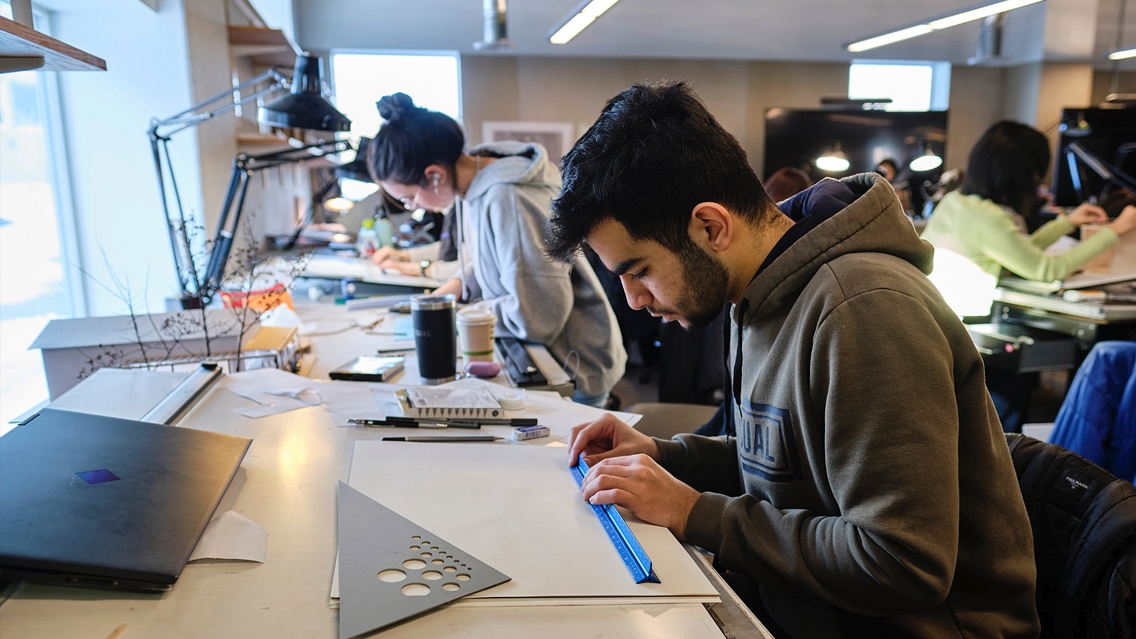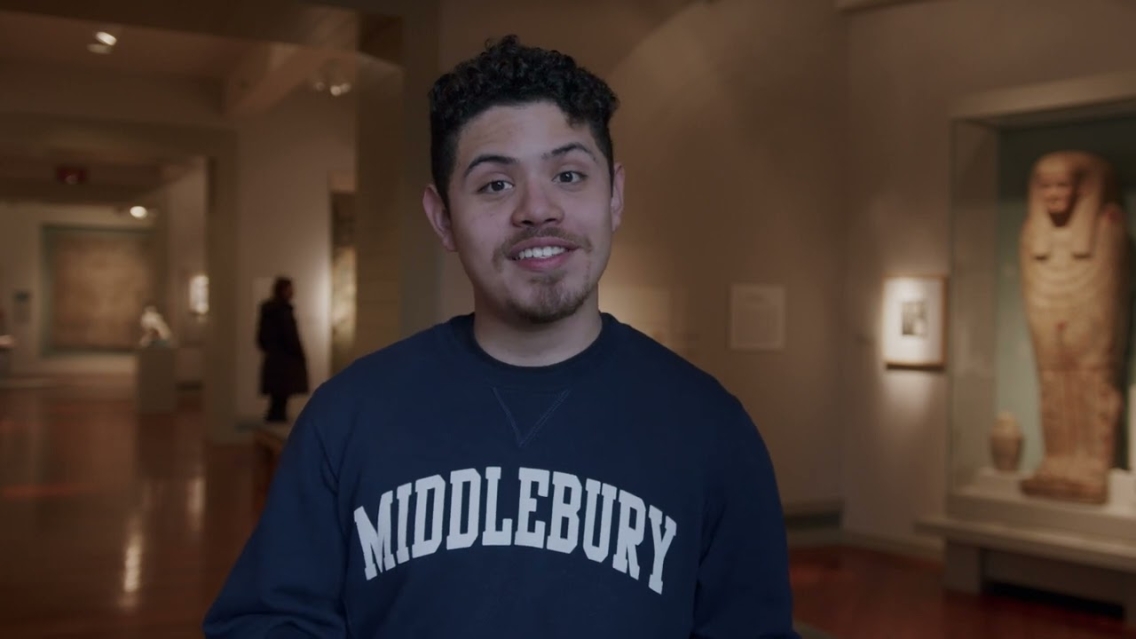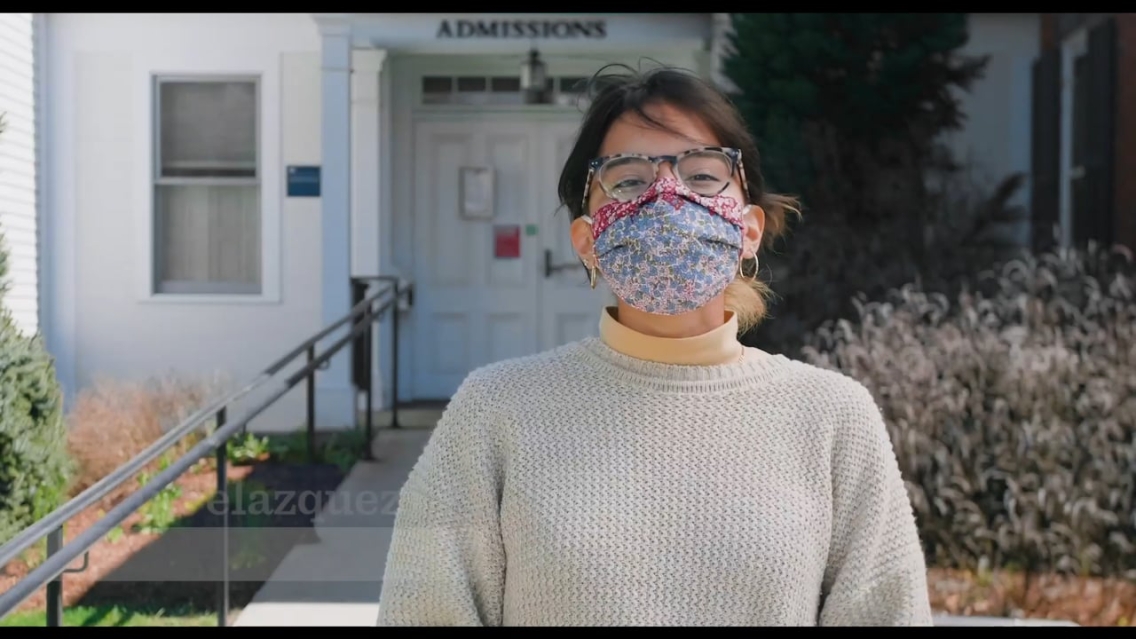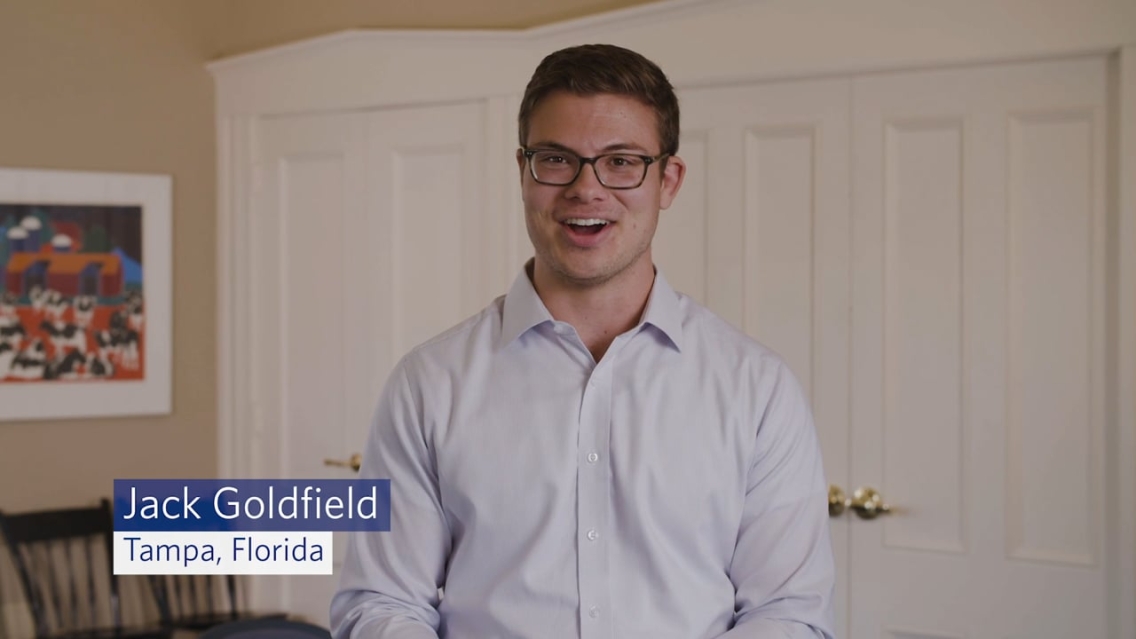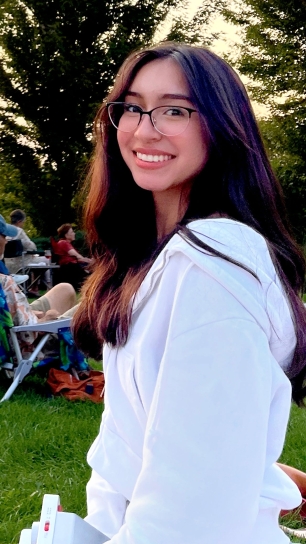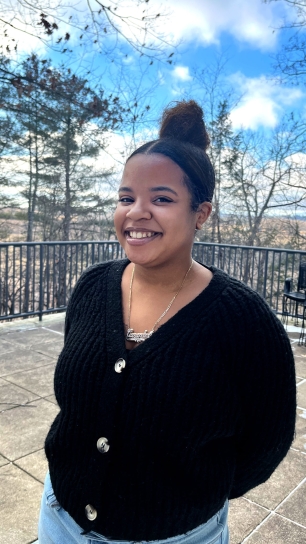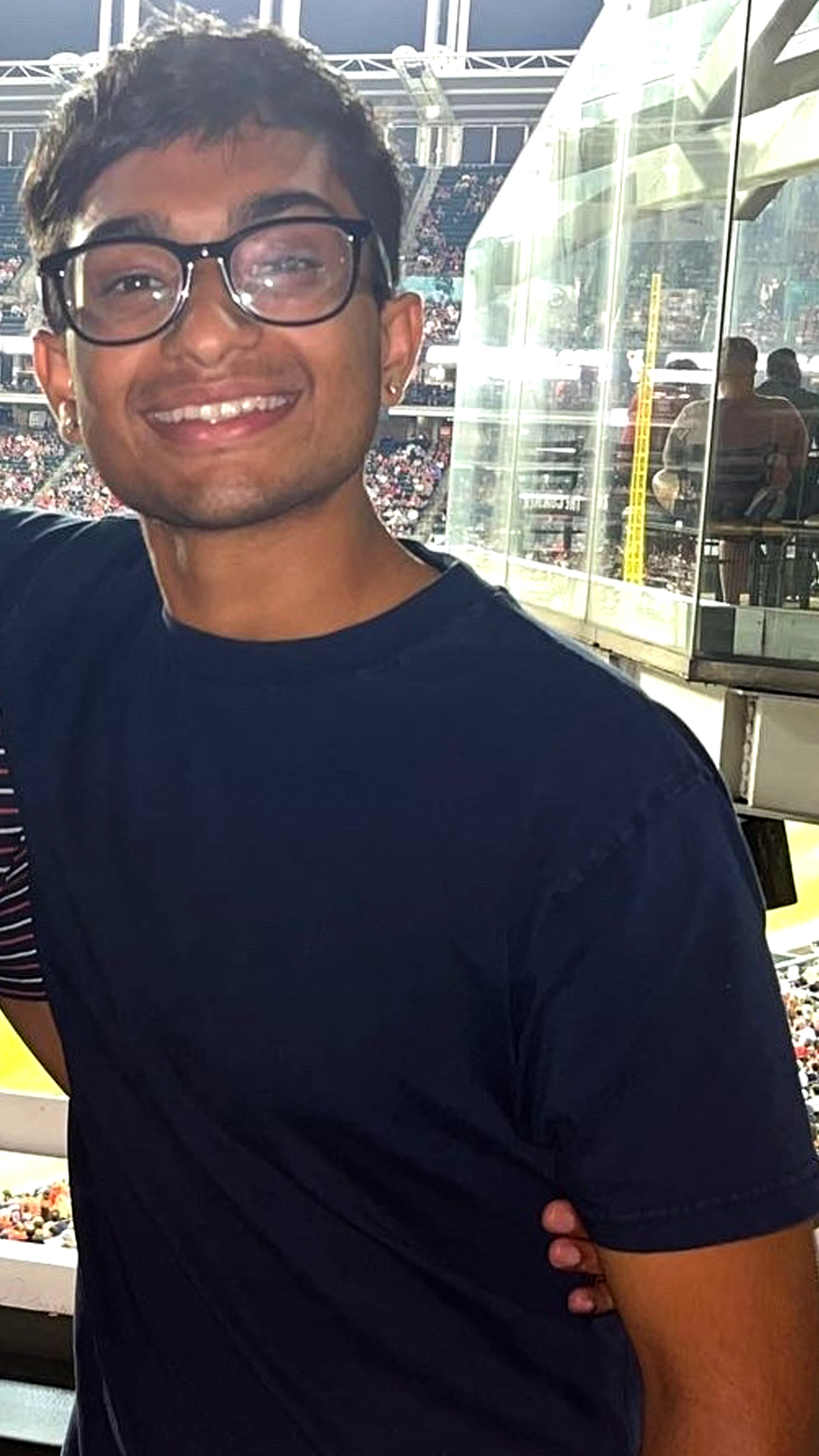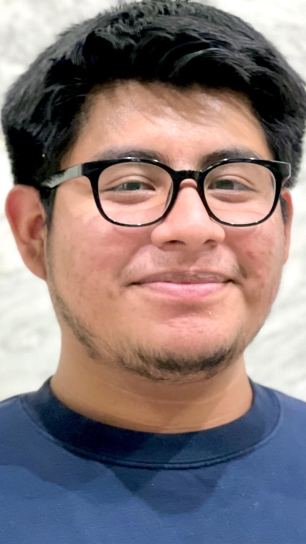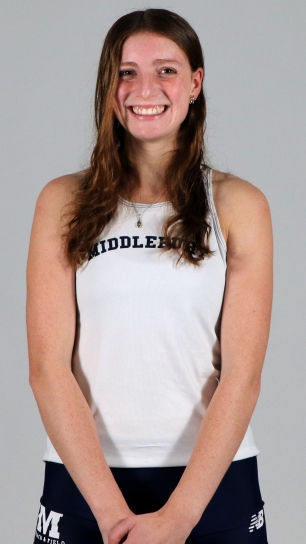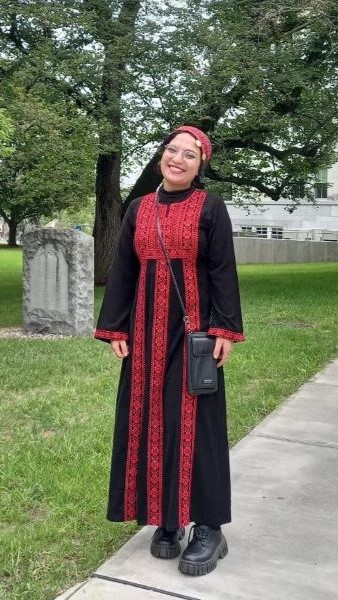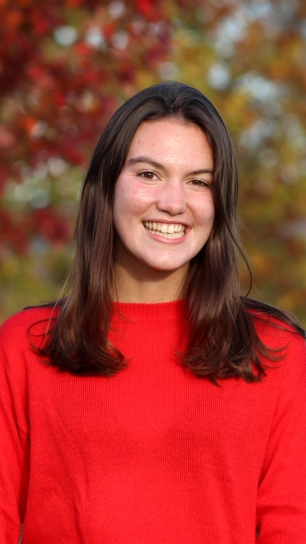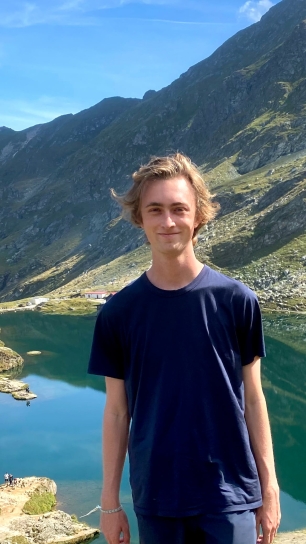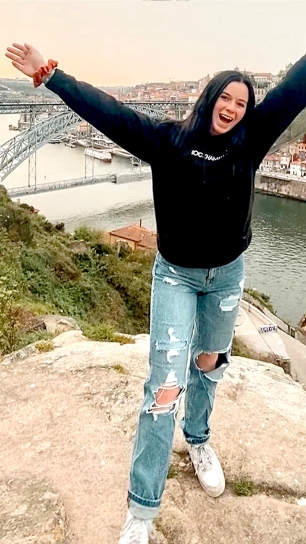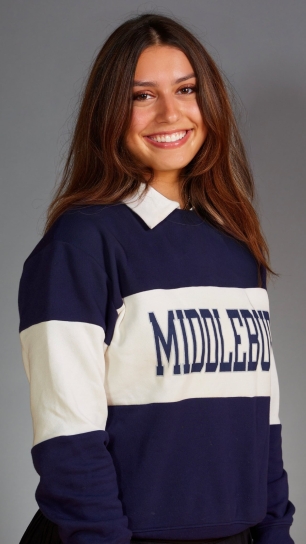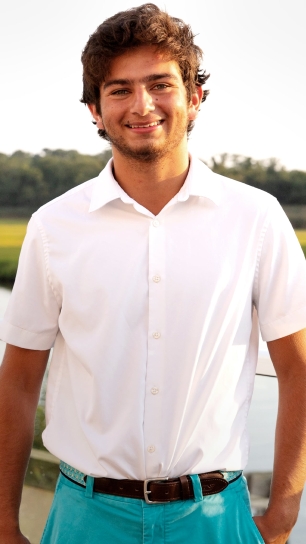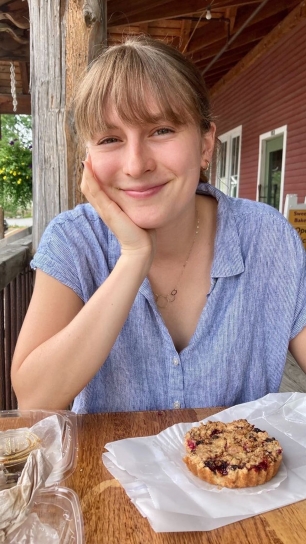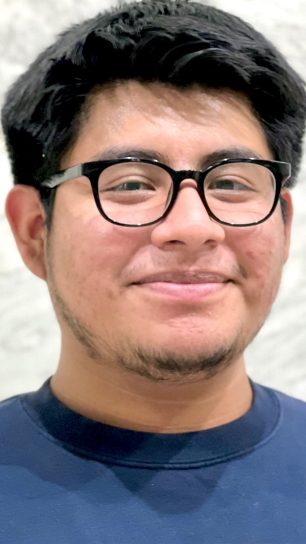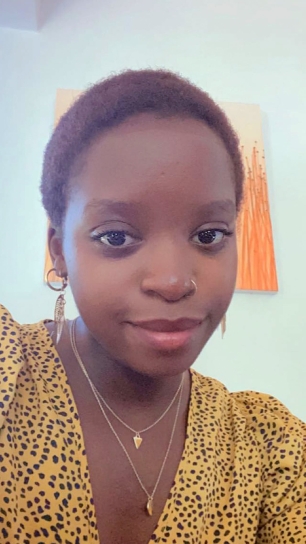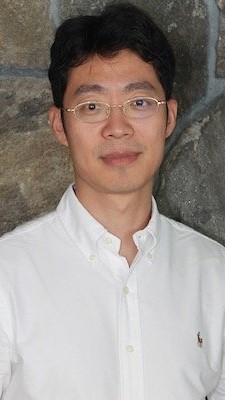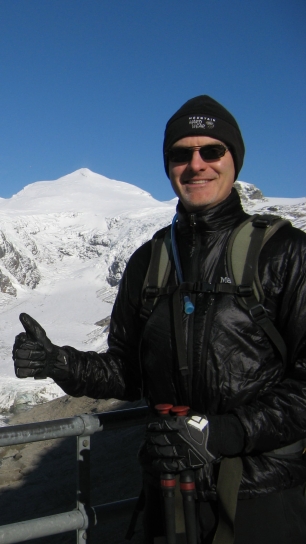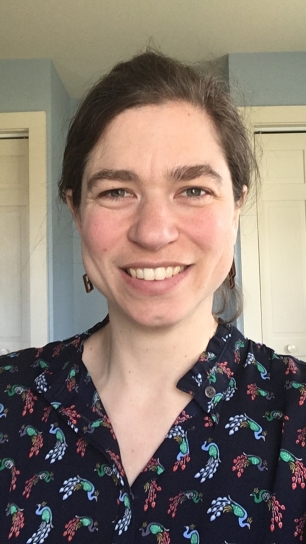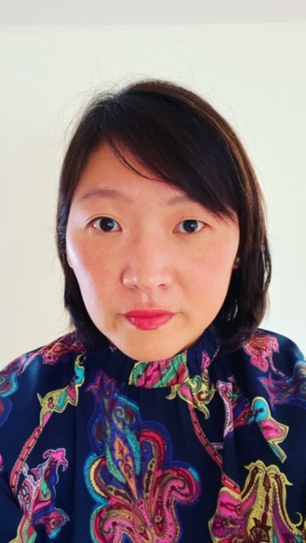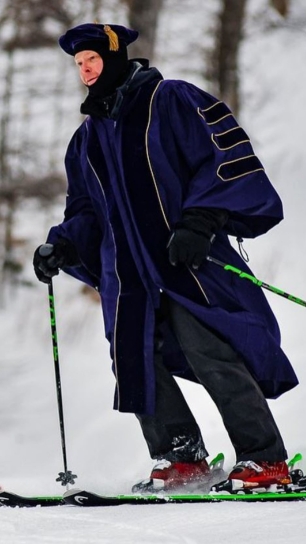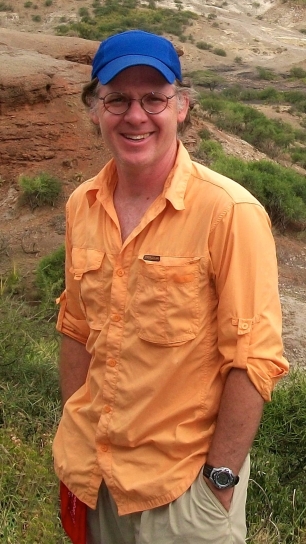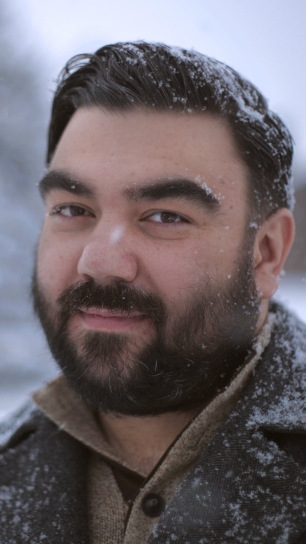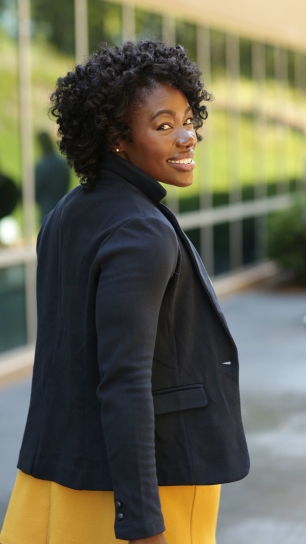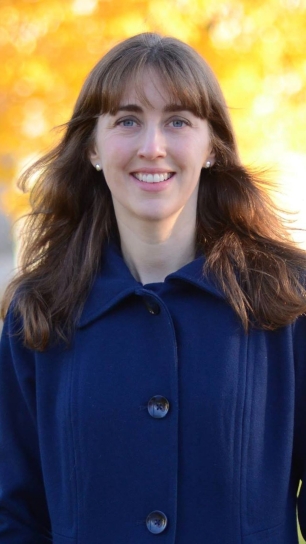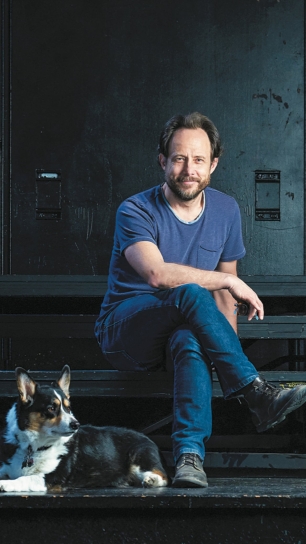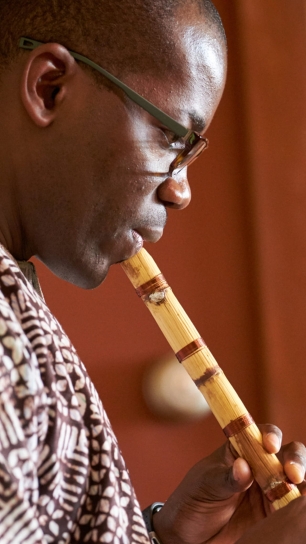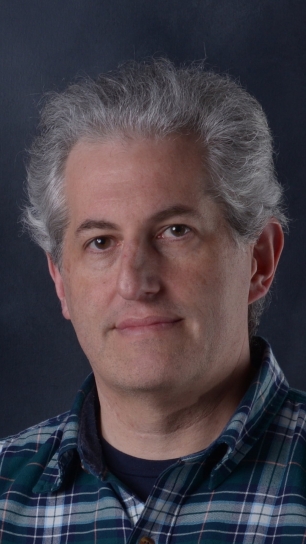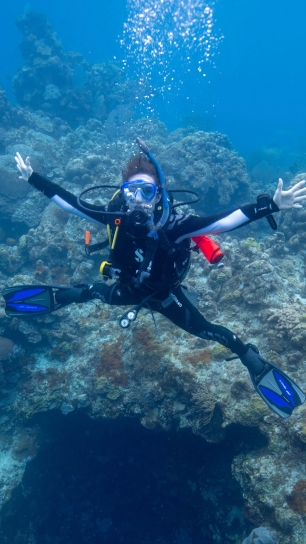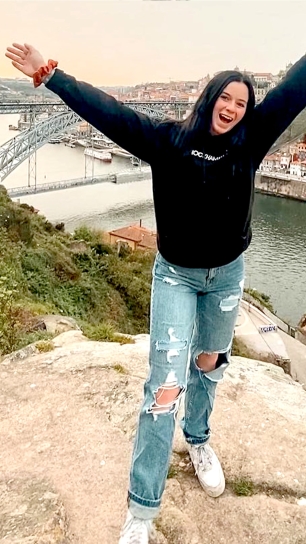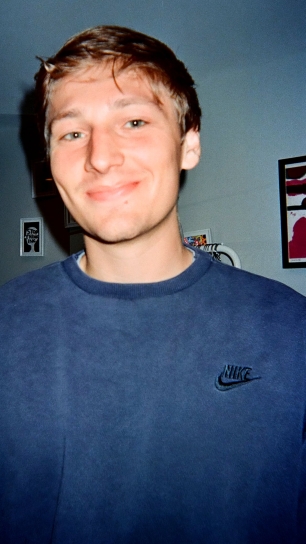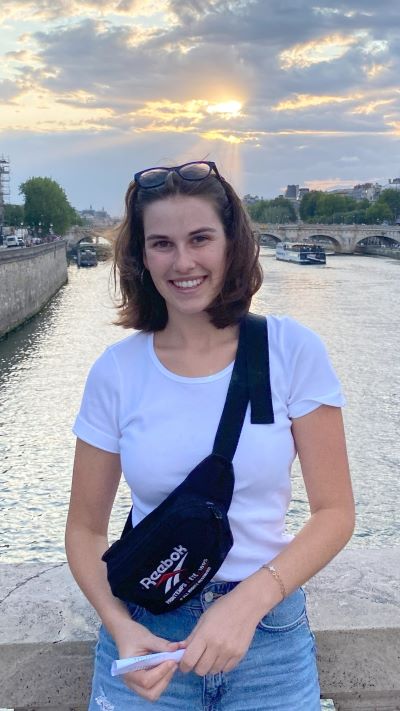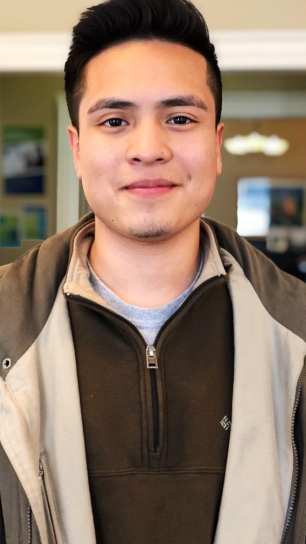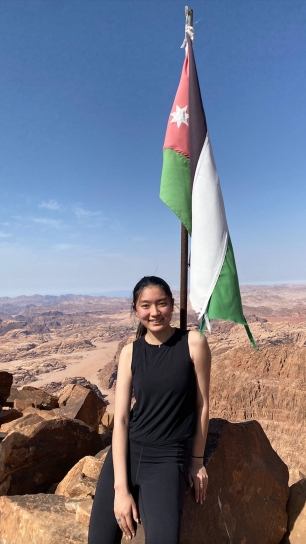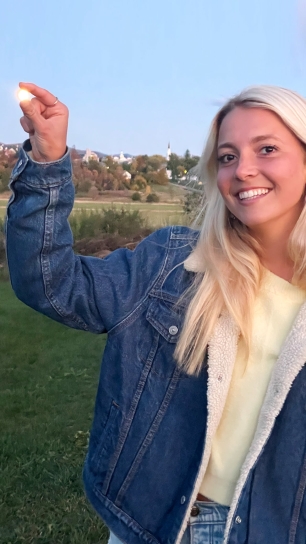Virtual Visits
Traveling isn’t always possible, and that’s OK!
Wherever you are in the world, you can make a virtual visit to Middlebury.
Say Yes to the Possibilities
Explore what’s waiting for you here at Middlebury College.
- I knew I belonged at Middlebury College, because there’s no end to the possibilities here. You’ve got endless options for staying fresh, for feeling alive, for getting out of your comfort zone and seeing the world. It’s here in Middlebury that I found the possibilities are literally endless, to shape your own life.
- As cliche as it is, just be you is the way to be successful here on campus, because we all have something unique to bring to the table, and regardless of where you’re coming from, have confidence in this open and welcoming community. It’s a point in your life where you’re growing and changing, and deciding kind of who you want to be and how you want to live. And Middlebury offers so many opportunities to explore various aspects of that.
- Good, perfect.
- You are never gonna feel like you are an outsider, and that was one of my main fears coming to Midd. But during my first semester here, I remember vividly being in one of my classes, and my professor saying, “Congratulations for all of you to making it to this point in your academic careers.” And I think that really highlighted for me that I belonged in this community, I belonged in this classroom, and that was the start of my journey at Midd.
- What community means for me at Middlebury is the openness. Openness for different perspectives, openness for people who come from different backgrounds from you, but then also openness within disagreement, where you feel comfortable countering someone’s point, and not being scared of ridicule, or that you’ll be shamed for having a different opinion.
- If you are the type of person that wants to be in an environment where you have the complete freedom to just be who you are, and see who you could be, Middlebury is that place.
Middlebury Campus Tours
Middlebury Campus Tour
(upbeat piano music)
- Hi, I’m Paul.
I’m a senior here at Middlebury,
majoring in religion and English,
and today, I’m going to show you around
our beautiful Middlebury campus.
Right now, we’re outside
the Davis Family Library.
Our three-level library,
open 7:30 to midnight,
in the hub of student life.
The library also boasts
the Technology Helpdesk
for any tech issues you might
have with your Mac or PC.
There’s also the Center for
Teaching, Learning, and Research,
a free resource for
students who need tutoring
or additional academic support.
(gentle upbeat music)
And this is the Axinn
Center for the Humanities.
It’s one of our newest buildings
on campus and very modern,
but it was actually constructed
around the old Starr library,
so there’s quite a bit of history here.
Students love to study here
in the historic reading room
and if not here, right next
door, in the Abernethy room.
Axinn is where you’ll find
the Film and Media Culture,
History, English and American Literatures,
and American Studies Departments.
I actually took a class here last semester,
and the professor asked us to
specifically not write a paper
and instead use the resources
and the tech in the building
to either make a podcast or make a video
or make something completely brand new.
This is McCullough Student Center,
one of the most pivotal parts
of the Middlebury experience.
This is the place for students
to congregate, destress,
play some games, have some food,
and just enjoy their time at Middlebury.
McCullough is home to
Wilson Hall to my right,
our performance space.
It’s also home to our mail center,
our bookstore, our convenience store,
and two retail dining
options for students.
(gentle upbeat music)
This is Hillcrest,
home of the Franklin Environmental Center.
We are very proud that
Middlebury happens to have
the oldest environmental
studies program in the country.
Students can engage in environmentalism
through hands-on work
with local organizations
or at the Knoll, our community garden
that contributes to the
campus dining halls.
This is the Mahaney
Arts Center, or the MAC,
home to the Music, Dance, Theatre,
and Art History Departments.
If you’re looking for a show,
this is the place to be.
Here, you can find our black box theatre
and our dance studio, as
well as our concert hall,
a great place to catch
a TEDx Middlebury talk
or one of our public speaking courses.
We’re in one of the
quietest spots on campus,
the Middlebury College Museum of Art.
It’s completely free
for Middlebury students
and community members.
This is the Peterson
Family Athletics Complex.
We’re a very active community
and we’re very proud to
be part of the NESCAC,
the New England Small
College Athletic Conference.
We have 31 varsity sports
and a handful of club sports,
including soccer, rugby,
and even Quidditch.
All Middlebury College
students have access
to our facilities,
including the field house,
as well as a squash
court, Olympic-size pool,
multilevel fitness center, and gym.
If you’re looking for
something more outdoors,
there’s also the TAM, the
Trail Around Middlebury,
a 19-mile trail that surrounds the town
and neighboring vicinity.
(gentle upbeat music)
I have to head to class,
but here’s my friend Coco,
and he’ll finish the tour.
- Thanks, Paul.
My name is Coco Gruson.
I’m a sophomore majoring
in Japanese studies
and I’ll be your tour guide
for the rest of the day.
Let’s head to the Château.
(gentle upbeat bell music)
Welcome to the Château,
home to the French
Department at Middlebury.
Like many buildings on
campus, the Château serves
as both a residential
and academic building.
I actually have class in the Château
every Tuesday and Thursday
for my Japanese class.
Middlebury is known to have one
of the strongest language
departments in the U.S.,
offering 10 foreign languages
throughout the calendar year.
This is Bi Hall, home to
our science departments.
Some popular majors include
biochemistry, neuroscience,
molecular biology, and geography.
Students foster strong relationships
with their professors
through lab and research,
publication opportunities,
and hands-on work.
To my right, we have Ross Dining Hall,
one of three dining halls on campus.
Our open dining plan gives
students unlimited swipes
and tons of flexibility
with our busy schedules.
They serve a diverse range of food
that can meet any dietary needs.
Over at Proctor, we have
the language tables,
where students order and
converse in a foreign language.
It’s a great opportunity
to immerse yourself
and get some real-life practice.
Behind me is the Anderson Freeman Center,
home to the Middlebury
Intercultural Leadership Coalition,
which includes BSU,
Alianza, Mixed Kids of Midd,
and other affinity organizations.
The AFC is also home to First
@ Midd, a preorientation
for students first in their
family to go to college.
This building also
houses the Prism Center,
a space that centers queer
and trans students through advocacy.
Now, it is important to remember,
going to school in Vermont
means living through all the seasons.
First, we have the beautiful fall foliage.
Then, we get all the snow,
which we take advantage of
here at the Snow Bowl.
Just a short drive from
campus, the Snow Bowl
is one of only two college-owned
ski areas in the U.S.
I might be biased, but ours
is definitely the best.
Middlebury makes sure that outdoors
are accessible for everyone.
Snow Bowl tickets are free for first-years,
and you can borrow top-notch equipment
from the gear room on campus.
If you’ve never skied before,
you can also take ski
lessons during J-term.
We have reached the end of the tour.
Thank you for watching and
we hope to see you soon.
(gentle music)
Live Online Information Sessions
Join our live virtual information sessions and learn more about Middlebury from anywhere in the world. These Zoom gatherings will provide a brief overview of the Middlebury experience and will allow plenty of time for Q&A.
Virtual Tour and Campus Map
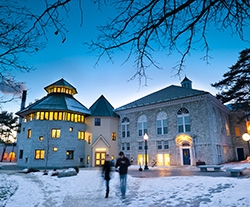
You can take a tour of Middlebury’s scenic 350-acre campus with our interactive map. Explore our academic buildings, dorms, athletic facilities, and more, plus see street view images of places around campus.
Recorded Information Session
Recorded Information Session
Attend a student-led information session whenever you want! Hear all about Middlebury from Admissions Senior Fellow Jack Goldfield in this 30-minute video.
Hi everybody. My name is Jack Goldfield and I’m a senior fellow here at the Admissions house at Middlebury college. A little bit about myself before we get started. I am an international and global studies major focusing on Latin America. I do speak Spanish and Portuguese. Additionally, I served as a senator on our Student Government Association for three years. I was on the sailing team my junior year and I’ve also been involved in a number of student publications on campus as well as have worked at language tables.
Before we really get started, I do wanna give you a brief outline of what this presentation is going to look like, so we’ll start off talking about Vermont, right? Because to best understand Middlebury, you have to understand our geographic location and how that impacts life on campus. And then we’ll talk about what your life here at Middlebury will look like going through our four-one-four calendar starting in the summer before you ever even arrive at Middlebury. Then talking about four courses you’ll take in the fall semester, one that you’ll take during the month of January, and four in the spring, and then we’ll end up talking about research, job, and internship opportunities after graduation.
So let’s do just that and start talking about Vermont. I remember coming from Tampa, Florida, I had all these preconceptions about what Vermont meant, right? What it meant to be a Vermonter. And so words that immediately came to mind were “cold.” The first time I visited Middlebury was in March of my sophomore year in high school, and I was this kid coming from Tampa, right? I had this light jacket on and jeans. Those were my warmest clothes, and I stepped out of the car and I said, Wow, this place is beautiful. But let’s tour it from inside the car, right? Additionally, I thought that Vermont was all cows, right? There are five cows to every one human being in the state of Vermont. I learned that Vermont has the most Subarus per capita of any state in the country, and a really fun one is Vermont has the most artisanal cheese makers per capita, right? We have these facts that we’re super proud of here in Vermont. But on a more serious note, Vermont was actually its own country before becoming part of the United States. It was the 14th state to join the Union, right? After the first after the original 13, and I think that that really describes the spirit of the Vermonters. Vermonter is independent and forward thinking, and we see that primarily in the causes of social justice and environmental justice, and that’s not just at the state level; that’s here at Middlebury as well. In fact, a few years ago, Middlebury became carbon neutral in 2016 and on top of that carbon neutral initiative, Middlebury has signed onto a commitment of Energy2028, in which Middlebury has decided that by 2028 Middlebury will be entirely divested from fossil fuels as well as operate on entirely renewable energies.
Middlebury was founded in 1800 with three buildings, known on campus as Old Stone Row. In those buildings, Middlebury housed students, right? Students ate together, they lived together. There was these small faculty-to-student ratios, which created this really intimate learning environment. And we were founded as the town’s college, not the college’s town. So we really wanted to have this seamless relationship with the greater Middlebury community. And we can really see that today, 220 years later. So even though our student body has grown exponentially to 2,500 students, we still have the same intimacy on campus and with the town.
So of course you’re going to see on any given day students going into town to go shop at stores or go into restaurants. But it’s much more than that. In fact, last year, over 75 percent of Middlebury students performed community service, which translated into over 65,000 hours of a positive difference. So what does that look like? Well, maybe you’ll see a big football player walking around campus with an elementary schooler providing guidance, advice, friendship. Or maybe the soccer team goes in on a Friday night and cooks a community dinner.
But this relationship isn’t a one-way street. In fact, a lot of the members of the town are very involved in the Middlebury community as well. And we see this in a number of ways. So at many of our sporting events, for example; you’ll have a lot of the members of the town being the most adamant supporters of our sports teams. But I think an example that is much more prominent than this comes in our lectures. Middlebury gets some fantastic guest lecturers to come to campus on any given year. And most of those lectures are not just open to Middlebury students, but the public as well. So I remember a few years ago there was this talk given by Ken Burns. He came to give a lecture on his new documentary on the Vietnam War, and he packed this auditorium, right? And I would say half of the people there were students and the other half were members of the town. And of those members of the town, many of them, they themselves were Vietnam War veterans. So think about how fully immersive of a learning environment that is. You have students at Middlebury learning about the Vietnam War. A guest lecture teaching about the Vietnam War and people who were actually in the Vietnam War. All there, sharing with one another, learning from one another.
Let’s talk a little bit about what your experience at Middlebury will look like, and your experience at Middlebury starts before you ever even arrive on campus. You’ll get a few really important emails from the College, the first of which is talking to you entirely about orientation week. Orientation week is a week that first-years have on campus almost exclusively to themselves prior to classes starting. During this time, first-years have an opportunity to really orient themselves with college life and they’ll participate in a number of activities, one of which is signing the honor code.
The honor code at Middlebury is something that’s very important. And when you sign that honor code, you’re saying, I am going to respect myself and respect the community around me. So what does that look like? It means that at Middlebury, almost all, if not all, of your exams will be unproctored. In fact, the professor will administer the exam, say, I’m trusting you not to use your notes, not to use your textbooks, and leave the room, then come back to pick them up at the end of the class period. Otherwise, a professor will give you the exam and say, I’m administering this exam on Monday, take it home, do it in your dorms, do it in the library, and bring it to me back on Thursday.
And now maybe a bit more fun aspect of this orientation week is your MiddView trip. MiddView trip is a three-day excursion that all first-years go on Friday morning and then returning Sunday evening right before courses start. And this trip can really, really range in what it looks like. In fact, in this email you’ll get a list of probably 40 or 50 different options of what your MiddView trip will be. And so maybe you’re super into those artisanal cheese makers; you can go and explore Vermont’s culinary scene. Or maybe you’re really into politics; you could explore Vermont’s surprisingly robust political scene. Or you can be like me and come from a state where our largest mountain’s a speed bump, and decide, “Hey, I’m gonna go and try to hike those Green Mountains.”
And so that’s exactly what I did. And I thought this trip was so special because not only was it led by a current Middlebury sophomore, junior, senior who had already gone through part of this Middlebury experience and wanted to share their advice with us, but it also brought together so many different people on campus that perhaps would have never otherwise met. In fact, I remember on my MiddView trip I was placed with people from different parts of the country, different parts of the world, different academic interests, live in different parts of campus, and to this day, because we spent those three days hiking together, we still talk to one another. In fact, one of my good friends from that trip also works here in the Admissions house.
And so that’s a really important email, but then you’re also going to get another one that’s talking to you entirely about your first-year seminar. Your first-year seminar is a critical writing and reading course that all first-years are required to take in their first semester on campus. And even though all first-years are required to take this course, not all of those courses are the same. So maybe you really love women in Shakespeare. Well, you can take a critical writing course on women in Shakespeare. Maybe you’re super into infectious diseases; then you can take a critical reading course on infectious diseases. Or you can do what I did, which was come to college in the fall of 2016 and take America’s Constitutional Democracy.
And what’s super cool about all of these first-year seminars is not only is everybody in your class also a first-year and you’re going through the shared experience together, but the professor of that course is also your academic advisor until you declare a major. Now, that’s something that I didn’t realize how important it was until I got to Middlebury and saw that I already had a face to a name. There was somebody that I could go to whether I had questions about academic happenings, or extracurriculars, or even things happening outside of Middlebury.
And so as I mentioned, my course was America’s Constitutional Democracy. And I remember everybody was trying to make this really great first impression with our professor, right? We were doing these super dense readings on Alexis de Tocqueville and John Locke and John Stuart Mill, and everybody was doing them super thoroughly. We had these robust conversations in class because we wanted to make this great first impression. But I remember a few weeks into that first semester, conversation in class had maybe died down a little bit. And our professor, he was a smart guy, he realized this. So he walked into class on a Tuesday morning with a piece of paper, and on that piece of paper he had a list of the 15 most controversial topics in the United States at the time. And he gave that piece of paper to every single student in the classroom. And he said, I want you to tell me what you think about this, and I want you to tell me what our authors would have thought of this. And I think immediately alliances were formed and enemies were made, right? We had these truly academic differences with one another that we were basing in the text, and even though by the end of the class when I think students were ready to flip tables, we all still went to lunch together. And after going to lunch together, we went back to our dorms together.
And why is that is because Middlebury has these living-learning communities called academic clusters, right? In these housing clusters, you live with everybody that’s in your first-year seminar. So you’re able to bring these academic conversations outside of the classroom, and that facilitates friendships as well. And within these living-learning communities, we have a great support structures. So you’ll have a first-year counselor on your hall, for example, that again as a Middlebury, sophomore, junior, senior who’s there to just provide you guidance, help answer any questions. I remember my first day on campus, I had no idea how to print. So like 10 o’clock at night, my FYC had the dorm right across the hall from mine. I was, Charlie, can you help tell me how to print, right? And he was there for me to show me how to print.
We also have Commons deans, and these deans will probably reach out to you in your first few weeks of your first year to say, “What can I do to make your Middlebury experienced better? How can I support you?” And what’s so great about that is even if you’re living in a completely different part of campus as I am now, four years later, that dean remains your dean for the entirety of your time while here on campus. And we do have, we are a residential college, and most students will actually live on dorms for the duration of their stay here.
But Middlebury still encourages students to explore more unique housing options. And so while I elected to live in a dorm with my friends all four years, some students will really be into food sustainability, so they can apply to live in the food sustainability social house. Or maybe you’re really into community service; we have a community service social house. Or maybe you love making granola and driving your Subaru into the mountains. You can join the outdoorsy social house.
And of course we have our language houses. So maybe you’re in your second year of German class and you’ve decided that two hours of German class a day plus German language tables where you’re only speaking German at lunch and two hours of German homework a day, that’s just not enough German for you. You can apply to live in the German language house where when you go home at night, you’ll exclusively be speaking German while in that house.
Now, I also want to talk a little bit about extracurricular opportunities at Middlebury because I think that that’s a very, very important part of your experience here at the College. At Middlebury, we have over 200 clubs and organizations that are available to 2,500 students. Think about how impressive that is for a second with a student population as small as that and having so many clubs accessible to them and these clubs, of course you’ll find many of them at any institution. We have a debate team, a model United Nations team, a cappella groups, improv groups, dance groups. But what makes it so special is that these student groups tend to be open to everybody.
Now I wanna talk a little bit about January term or, as we Midd Kids call it, J-term. J-term is a really special time on campus in which Middlebury students are only taking one course, and this course really allows students to pursue academic interests that perhaps they’ve always wanted to but maybe never had the chance to previously. So perhaps you’re a physics major, but you’ve always been interested in historical diplomacy. Then you can take a course on adversaries and allies, diplomacy during World War II and Vietnam. Or maybe you’re a physics major and you really want to get a course that’s required for your major out of the way during the month of January. You can do that too. And even though you’re only taking one course during the month of January, that course is actually still meeting for the same amount of class hours as any other course would be during the fall or the spring semester. So maybe instead of meeting for an hour and 15 minutes on Tuesdays and Thursdays, you’re meeting for three hours between Monday and Thursday. And even though we have these super cool courses, right, it’s actually still allowing you to pursue a lot of contrast outside of the classroom as well. That’s why we say the J-term is Middlebury’s way of embracing the winter.
And so for me, again, coming from Florida, that was an opportunity to learn how to ski. Middlebury has its own College-owned ski area and so I took the bus up that’s paid for by the student government, so it’s completely free for me, to our ski area and learn how to Alpine ski for the month of January during my first year. Now I’m a bit sad that the snow is melted because it’s an amazing pastime here at the College, but maybe not everybody wants to spend their time outdoors during January here at the College. And a lot of students understand that.
So in addition to this course work, there were also a lot of individual workshops that are taught by other students to allow students to explore new interests, right? So we have students, for example, who speak Korean on campus, but Korean isn’t offered as a language of Middlebury throughout the academic year, just during the summer programs. So they’ll teach a course on Korean. There’s a student on campus who’s great at repairing iPhones. So he will teach a course on iPhone repair during the month of January. It’s also a really, really great recruiting time for the logrolling team. For some reason a bunch of people head into the natatorium during the month of January and learn how to logroll.
So there are just endless opportunities that we have for J-term, and now you’re not required to be on campus for all four J-terms, just your first J-term and one of the other three. With that said, however, most students elect to spend all four J-terms at Middlebury because it is such a special time. Even so, many courses will actually travel for their J-term, and so this past year alone we had courses that went to the Bahamas, there were student groups in Guatemala, student groups in India, student groups in Ghana. So even though we have this J-term in Middlebury, Vermont, we still are connected to the rest of the world.
And what the end of J-term marks the beginning of Febs. Febs are a group of about 100 students that arrive in February as opposed to September. And now they arrive on campus the week after J-term, in which most students who are on break, and they have an opportunity to go through their own orientation program. At Middlebury we say we do everything twice. So Febs that are arriving in February, they also go through, as I mentioned, this orientation week, they will sign the honor code, they are placed into a housing cluster, they have a first-year seminar, they can go on their own orientation trip.
And so these students, as I said, they arrived in February, but they have so many unique and exciting opportunities and experiences because they arrived in February and had their last semester off. We call it a Febmester. And during this Febmester, they’ve done a number of exciting things. There’s no exact prescription as to what Febs have to do in their Febmester. So some students will travel, some students will work. Students have stayed at home and made dolls for local children’s hospitals.
A lot of people have questions about the Febs, one of which is being integrated with the rest of campus, right, as they are arriving in February and 650 students arriving in September. I say that I like to describe Middlebury students as intellectually curious. So as excited as you are to arrive at Middlebury in September and meet your 650 classmates through January, you’re equally, if not more, excited to meet all of these 100 new Febs that just arrived on campus, that have these super unique stories to tell. Furthermore, because of the way that housing is, because Febs are occupying the dorms of Febs who’ve just graduated or juniors who are studying abroad, not only do they tend to have really great dorms, they are also kind of spread throughout campus, which is automatically encouraging them to be socializing with everybody.
Now because Febs arrive in February, that also means they have to graduate in February. And I think this is one of the coolest traditions that we have at Middlebury, where after graduating at Mead Chapel, all of the Febs go up to the Middlebury Snow Bowl and they ski, snowboard, walk down in their cap and gown, celebrating the fact that they just graduated.
Whether you want to be Feb, that is considered after the admissions committee has already made a decision regarding your application. So on your common app, there are three questions. One is saying, “I prefer to be a Feb,” yes or no. One is saying, “I prefer to be a September admit,” yes or no. And one is saying “I have no preference. I’d love to come to Middlebury either way.” And Middlebury only takes that into consideration after having made your admissions decision. Furthermore, a lot of Febs have really great opportunities getting jobs postgraduation because they are entering the job market at a time in which most students are not, right, as most students are graduating in May or June.
Now I’d like to talk a little bit about the spring semester and in the spring semester I really highlight Middlebury’s study abroad programs. You can study abroad in both semesters, and in fact there is pretty much equal distribution of study abroad students between the fall and the spring. Sixty percent of Middlebury students study abroad, 50 percent of them go on a Middlebury-sponsored program. Middlebury has 38 programs in 17 different countries and, with the exception of Oxford and Delhi, all of these programs are entirely in a language other than English.
And from the moment that you arrive in this country, you will speaking a different language. Middlebury has a Language Pledge, and when you sign that you’re saying, “I am exclusively going to speak this language except when I am communicating with parents,” for example, and I didn’t realize how real that was until I myself went abroad in the spring of 2019. I went to Belo Horizonte, Brazil, and from the moment my plane touched down, I was speaking entirely in Portuguese. I attended a university with 50,000 Brazilian students and there was only me and one other student on the Middlebury program there with us. And so of course that sounds daunting at first, but what was so great for me was knowing that even though there were just two of us in Belo Horizonte, Brazil, we still had the full support of Middlebury behind us.
In fact, Middlebury had a faculty and staff member there in Belo Horizonte with us making sure that everything was going to go seamlessly. She would sponsor travel programs for us. She would make sure that we got a phone plan. She would make sure that we were registering for courses properly. If we needed medical care, she was the immediate contact to turn to. And I think that that was so great about Middlebury is that even though we were so far away from our Middlebury home, we still had somebody there with us. And that is the case for Middlebury Schools Abroad as a whole.
As I mentioned, 50 percent of Middlebury students study abroad on Middlebury programs and 50 percent elect to go on other programs. So maybe you really wanna study abroad in South Africa or in Australia. Then Middlebury’s Study Abroad office has over 100 preapproved programs and you can go to the Study Abroad office, find one of those programs that will transfer rather seamlessly so that you can still study in that country. With Middlebury programs, financial aid has to travel seamlessly with non-Middlebury programs. It also tends to travel well. But you work with Student Financial Services as well as the Study Abroad office to ensure that happens.
It’s also important to mention that Middlebury is a liberal arts and sciences institution. In fact, over one third of Middlebury students are STEM majors and we can really see that in the research opportunities that we have in the sciences here on campus. I know that I said I wouldn’t talk too much about the liberal arts experience, but I think that this really does drive it home. How important that it is to have professors that are focused entirely upon the student body. In fact, one of my closest friends here at the College knew that he wanted to do research before ever even arriving his first year. So he sent an email to a biology professor and said, Hi, this is my name, I’m an incoming first-year and I was curious if you had any research opportunities. The professor, without ever having met the student, responded and said, Actually, yeah, I do. Stop by my office when you’re on campus and let’s see if we can work something out. He got on campus and five minutes after talking to this professor, he had a research opportunity in the sciences that he was able to carry out, not just throughout the academic year but into the summer as well.
Furthermore, Middlebury has its own research vessel on Lake Champlain, which students are able to go out with faculty and do different research on the lake, which I think is such a cool opportunity that students are really able to explore their own backyard here in Vermont. Research, however, is not exclusive to the sciences. I myself, for example, wrote a thesis in my fall semester as well as J-term and I had the opportunity to apply for funding from the College to travel to access different archives in order to write my thesis, which was on resilient American relations between 1943 and 1964. Fascinating, I know.
Many students will explore internship opportunities throughout the country and world throughout their summers. Students, for example, have interned at the Fed. Some students have gone to Washington, D.C., to intern at think tanks. Others have interned in finance in New York city. Or you can do what I did, which was intern with a local law firm here in Vermont. And Middlebury recognizes that many of these internship opportunities are unpaid or underpaid, and so the College has a fund that students can apply to to get funding for their internships, and many of these internships then are turned into jobs.
I remember the one question that my parents asked at every single info session was, will my son be employed when he graduates from your institution? And at Middlebury, I like to say that the answer is yes. You can see the statistics online and they’re rather impressive, and you can see that a number of students go directly into communications. Middlebury doesn’t have a communications major. A number of students also go into finance. Middlebury doesn’t have a finance major. This really just goes to show that no matter what you’re studying at Middlebury, you truly are prepared for anything that life throws at you after graduation. Ninety-four percent of Middlebury students that apply to medical school are accepted, which is very impressive given the national average hovers around 40 percent. Coincidentally, 94 percent of Middlebury students that apply to law school are also accepted.
But sometimes I do believe that stories can speak louder than numbers. And so I want to give a few brief examples of what some Middlebury alums have done postgraduation. The first of which is Stephen Hauschka. Stephen Hauschka came to Middlebury as a neuroscience major and a soccer player, and he is now the kicker for the Buffalo Bills. Prior to that he was on the Seattle Seahawks Super Bowl–winning team as their kicker. And a funny story here is during the Super Bowl, the players all do their talking heads, right? And so it came his time. He said Stephen Hauschka, Middlebury college, and when he said that, Middlebury’s Google searches spiked, and they actually got so many hits on their website that the website crashed. So Stephen Hauschka, thank you for the shout-out. We appreciate it. Koby Altman is another great example. He’s the current general manager of the Cleveland Cavaliers, and he was a sociology major here at Middlebury. And what’s so cool about Koby Altman is he still keeps very close relations and contact with the College. Anaïs Mitchell. She is the writer and director of Hadestown. Hadestown is a musical on Broadway. And she was a political science major here at the College. And a few years ago she came back. I wasn’t here for it. And she performed some songs and she said, “Please don’t judge me for this. I don’t think the songs are that good. I’m just kind of messing around.” And last year she won eight Tony awards for Hadestown. And then finally we have Mark Gordon. Mark Gordon’s the current governor of Wyoming, that’s all I know about Mark Gordon. But hey, you too could become the current governor of Wyoming if you go to Middlebury.
And so I want to finish up talking about why I chose Middlebury. I remember, as I mentioned, this very cold day in March visiting Middlebury and the moment that I stepped foot on campus, I thought it was one of the most beautiful colleges that I had seen, and that immediately piqued my interest, and I did some more research and was able to come back after Middlebury spring break to do an official campus tour, and I truly fell in love with it. I saw how the student body, everybody wants to be successful, but nobody wants to be successful at the expense of another. Everybody is really trying to bring one another up and be supportive.
I loved the fact that Middlebury had such reputable language programs. I knew that that was something that I wanted to continue in college and I’m so happy that I’ve taken advantage of that opportunity. And then really the most important thing to me were the small class sizes. That seemed to me like the perfect natural progression for my high school education and I saw that it would allow me to not just develop my own opinion, but to be able to defend it. I say that at Middlebury, everybody has a passion, and they encourage you to pursue your passion, and they also encourage you to learn about theirs.
And so ever since I’ve been here, I’ve explored so many different subjects, so many different, not just academic categories, but extracurricular ones that I never thought I would have pursued because that’s what Middlebury students encourage you to do. And it’s gotten me so far outside of my comfort zone. And that’s what’s made me the person that I am today.
Now, one last note regarding financial aid, because I think this speaks very highly to the priorities of Middlebury as an institution. Middlebury is one of only 28 colleges and universities across the country that is completely need-blind for the domestic applicants and meets 100 percent of demonstrated financial need. Thank you so much for tuning in. As always, if you have any questions, please feel free to reach out to me or to anybody else in the admissions house. We’re always happy to chat.
Middlebury Students Answer Your Questions
We asked our students to answer to some of the most common questions we hear from students like you. Here’s what they had to say.
If you’ve got other questions not answered here, let us know and we’ll get back to you!

